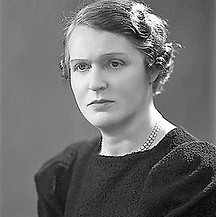Program IV:
Grand Finale
Saturday, August 19, 2023 | 7:30 PM
Hannaford Hall, USM | Portland
This poetically lyrical program, infused with unforced virtuosity and memorable melodies, is the perfect way to spend a summer evening. The witty sophistication of Germaine Tailleferre, the only woman in the early 20th century group of French composers known as Les Six, sets up a fascinating contrast with a passionately dramatic trio rooted in Armenian folk music. PCMF’s 30th summer season concludes with Schubert’s sunny Octet, with its bountiful array of strings and winds, hummable tunes, and genial Viennese charm.
Germaine Tailleferre Image for Piano Four-Hands (1918)
Diane Walsh and Andrew Armstrong, piano
Arno Babadjanian Piano Trio in F-sharp Minor (1952)
I. Largo - Allegro espressivo
II. Andante
III. Allegro vivace
Kristin Lee, violin; Raman Ramakrishnan, cello; Andrew Armstrong, piano
~Intermission~
Franz Schubert Octet in F Major, D. 803 (1824)
I. Adagio – Allegro – Più allegro
II. Adagio
III. Allegro vivace – Trio – Allegro vivace
IV. Andante – variations. Un poco più mosso – Più lento
V. Menuetto. Allegretto – Trio – Menuetto – Coda
VI. Andante molto – Allegro – Andante molto – Allegro molto
Anthony Marwood and Tien-Hsin Cindy Wu, violins; Melissa Reardon, viola; Raman Ramakrishnan, cello; Anthony Manzo, bass; Alexander Fiterstein, clarinet; Gina Cuffari, bassoon; Zohar Schondorf, horn
* Programs and artists subject to change
Concert run time is approximately 1 hour and 45 minutes, including a brief intermission. The concert will be live-streamed for free on our YouTube channel. The archived stream will be available to view for 24 hours.
Click here for
program notes
Meet The Artists

Andrew Armstrong
piano
.jpeg)
Gina Cuffari
bassoon

Alexander Fiterstein
clarinet
.jpeg)
Kristin Lee
violin

Anthony Manzo
bass

Anthony Marwood
violin

Raman Ramakrishnan
cello
.jpeg)
Melissa Reardon
violin

Zohar Schondorf
horn

Diane Walsh
piano

Tien-Hsin Cindy Wu
violin
Meet The Composers
Arno Babadjanian
1921-1983
Armenian composer Arno Babadjanian wrote in various musical genres, including many popular songs in collaboration with poets. Much of his music is rooted in Armenian folk music, which he generally uses in the virtuosic style of Rachmaninoff and Khachaturian. His later works were influenced by Prokofiev and Bartók. Praised by Dmitri Shostakovich as a "brilliant piano teacher," Babadjanian was also a noted pianist and often performed his own works in concerts.
In three substantial movements, Babadjanian's Piano Trio is passionate and full of memorable melodies with wonderful writing for all three instruments. The first movement begins in dramatic fashion with the strings playing the main theme in unison. Like a leitmotif, this theme reappears in each of the following movements. The second movement begins very softly with the violin introducing the lovely main theme high on its e-string. Eventually the cello joins in and the theme is intertwined between them in a very original fashion. The Finale is rhythmically quite interesting. Mostly in 5/8 time, it features two themes which which stand in stark contrast to each other. The trio ends with appearance of the opening theme and leads to a short stormy coda.
Franz Schubert
1797-1828
Franz Schubert was an Austrian composer of the late Classical and early Romantic eras. Despite his short lifetime, he left behind a vast catalog, including more than 600 secular vocal works (mainly lieder), seven complete symphonies, sacred music, operas, incidental music, and a large body of piano and chamber music.
The Octet in F major was composed by Schubert in March 1824. It was commissioned by the renowned clarinetist Ferdinand Troyer and came from the same period as two of Schubert's other major chamber works, the 'Rosamunde' and 'Death and the Maiden' string quartets. The Octet boasts the largest scale for any chamber work by Schubert. It is scored for a clarinet, a bassoon, a horn, two violins, a viola, a cello, and a double bass. This instrumentation is similar to that of the Beethoven Septet, differing only by the addition of a second violin.
Germaine Tailleferre
1892-1983
Germaine Tailleferre was a prolific French composer of symphonic, chamber, film, and radio music who is most commonly remembered as the sole female member of composer group Les Six, but her association with that group was relatively brief in the broader context of her career. Displaying early brilliance as a student at the Paris Conservatoire, Tailleferre won all the major prizes in her disciplines—Premier Prix in Harmony, Counterpoint, and Accompaniment—but never had the opportunity to compete for the Premier Prix in composition due to the suspension of the competition during the First World War.





